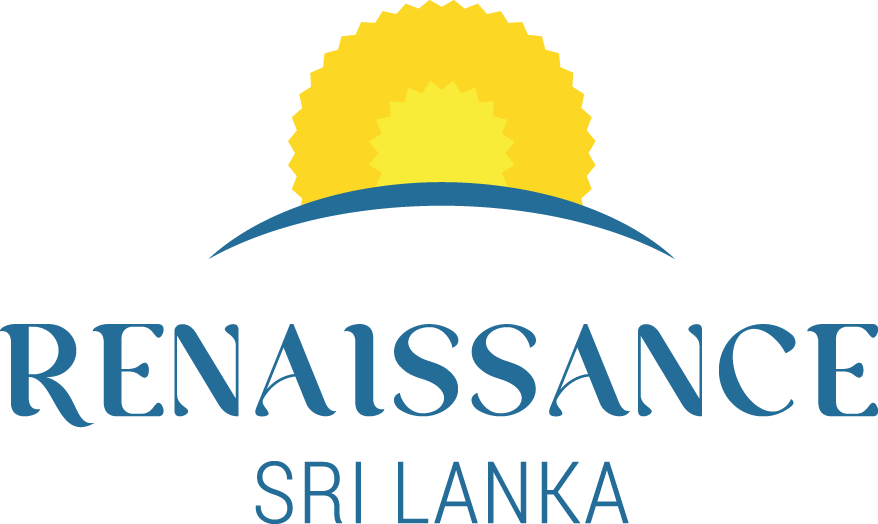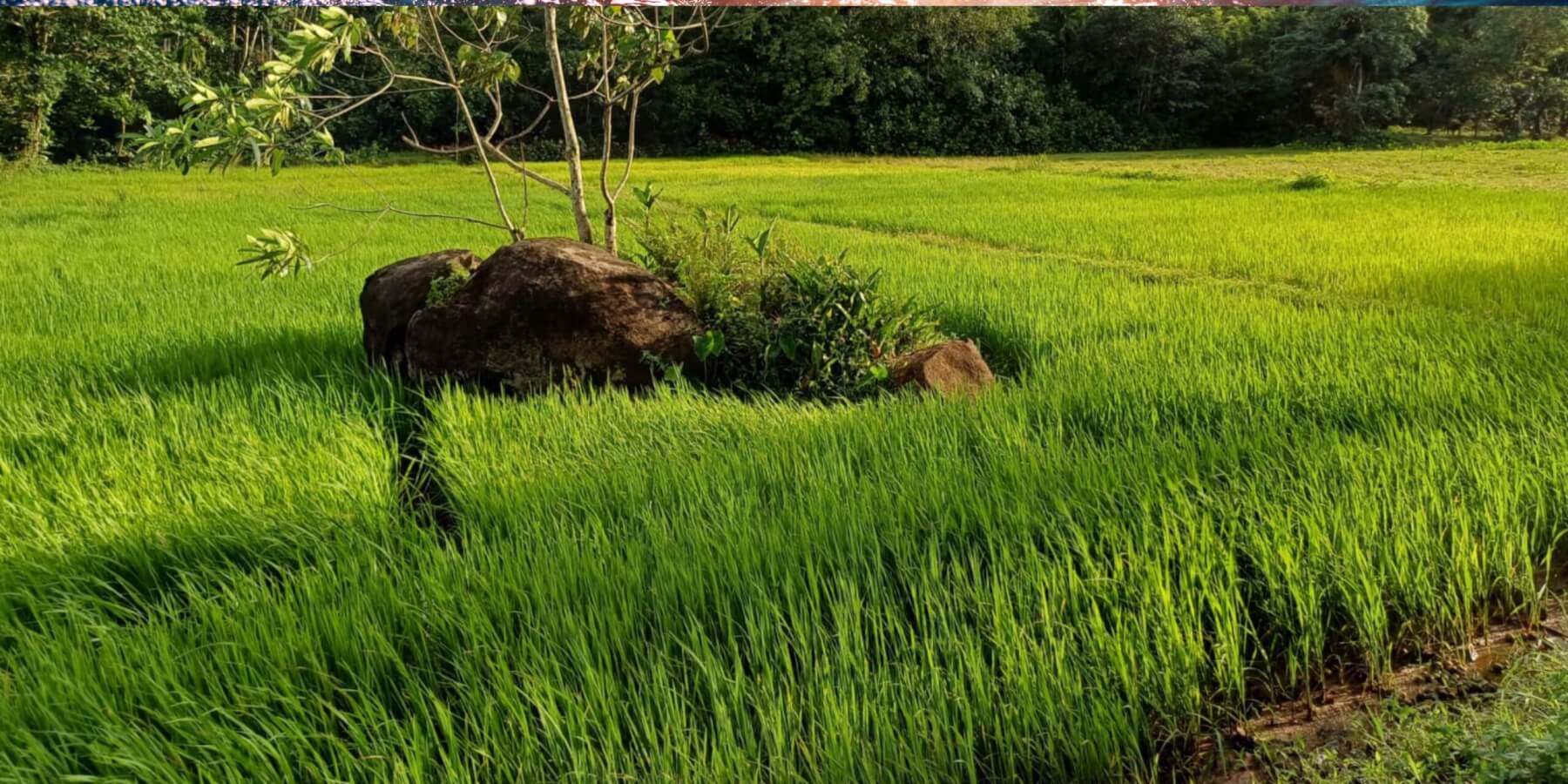Meeting Between Mrs. Ashinsa Bopearachchi and Mr. Shamila from MONLAR: Promoting Sustainable Agriculture and Empowering Rural Communities
On August 8th, 2023, Mrs. Ashinsa Bopearachchi, Chairperson of Renaissance Sri Lanka (RSL), had an insightful and productive meeting with Mr. Shamila Rathnasooriya from the Movement for National Land and Agricultural Reform (MONLAR), one of Renaissance Sri Lanka’s most important local partners. MONLAR is widely recognized for its unwavering commitment to sustainable agriculture and its instrumental role in promoting organic farming across Sri Lanka. The collaboration between RSL and MONLAR has been essential in organizing workshops that focus on empowering local farmers through agro-organic farming techniques, aligning with Renaissance Sri Lanka’s mission of fostering sustainable development and supporting rural communities (Read More).

Mrs Ashinsa Bopearachchi is with Mr. Shamila Rathnasooriya © Renaissance Sri Lanka
During their meeting, Mrs. Bopearachchi and Mr. Rathnasooriya delved into a wide range of topics, discussing the history and mission of MONLAR, its achievements, and the vital role it plays in advancing sustainable farming practices. They also discussed the ongoing collaboration between MONLAR and Renaissance Sri Lanka and explored future opportunities to strengthen their shared commitment to sustainable agriculture and rural empowerment.
The History and Founding of MONLAR
Founded officially in 1990 by Sarath Fernando and Premapala Hewabathuge, MONLAR emerged in response to the sociopolitical and economic crises that plagued Sri Lanka during the late 1980s. Sarath and Premapala, deeply concerned about the hardships faced by rural communities, agricultural issues, and livelihoods, initially became involved in the youth uprisings of that time. The founders were driven by the injustices and inequalities in the system, which led them to take arms against the government policies of the time. After five years of imprisonment, they were released and began reflecting on the root causes of the country’s crises. This reflection gave birth to the idea of MONLAR, an organization focused on addressing the challenges faced by rural people and advocating for national land and agricultural reforms.
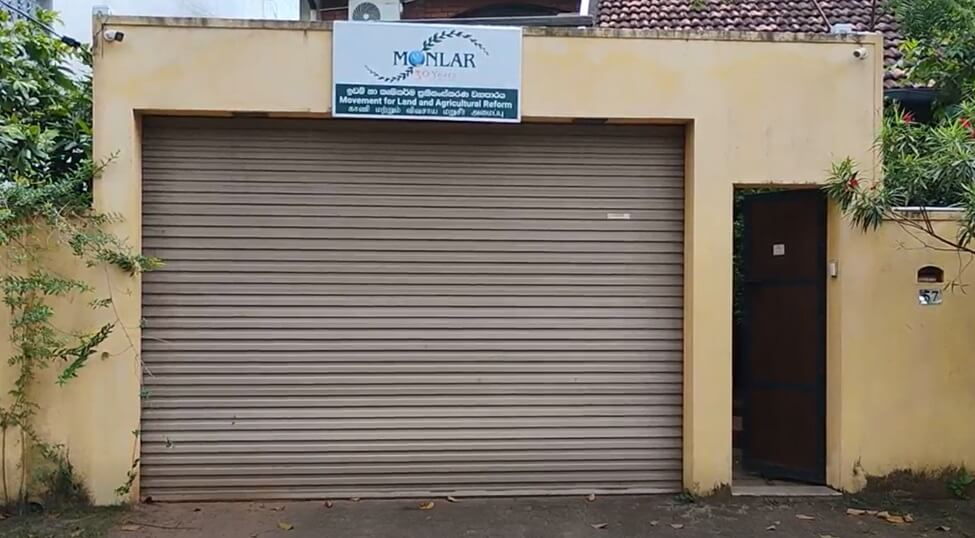
MONLAR Head Office at Rajagiriya Sri Lanka © Renaissance Sri Lanka
MONLAR was established as a network of farmer organizations, NGOs, and people’s organizations from various sectors, all united in their goal of creating meaningful change. From the outset, MONLAR’s mission has been to analyze and address the underlying causes of Sri Lanka’s societal challenges. As Mr. Rathnasooriya explained to Mrs. Bopearachchi, MONLAR aims to empower ordinary people by engaging them in dialogue about the problems they face, enabling them to develop their own solutions based on a deeper understanding of global and local trends.
MONLAR’s Mission and Vision
As explained by Mr. Rathnasooriya, MONLAR’s mission revolves around building awareness among the Sri Lankan population about the social, political, and economic factors affecting their livelihoods. By encouraging people to understand the larger societal and global trends that impact their local communities, MONLAR helps them create sustainable and effective solutions. The organization believes that when people have the correct analysis of the problems they face, they are better equipped to find the right solutions. This approach fosters a widereaching dialogue among people who suffer the consequences of flawed policies and unsustainable practices.
MONLAR also seeks to bridge the gap between local and global movements for sustainable agriculture and social justice. The organization works closely with international partners to influence policy changes that benefit Sri Lanka’s rural population. This comprehensive approach has allowed MONLAR to make a lasting impact on the lives of farmers, workers, and rural communities across the country.
Mr. Rathnasooriya’s Journey with MONLAR
During the interview, Mr. Rathnasooriya shared his personal journey with MONLAR, which began in 2001. Coming from Kurunegala, he moved to Colombo for his higher studies in computing. Due to various reasons, he had no place to stay, but through a personal friendship, he was given the opportunity to reside at MONLAR’s office premises. During his stay, he became increasingly interested in MONLAR’s work and its political ideology, which ultimately inspired him to join the organization as a computer operator. Over the past 24 years, he has risen through the ranks and now serves as the Operation Program Manager, playing a key role in managing MONLAR’s projects and initiatives.
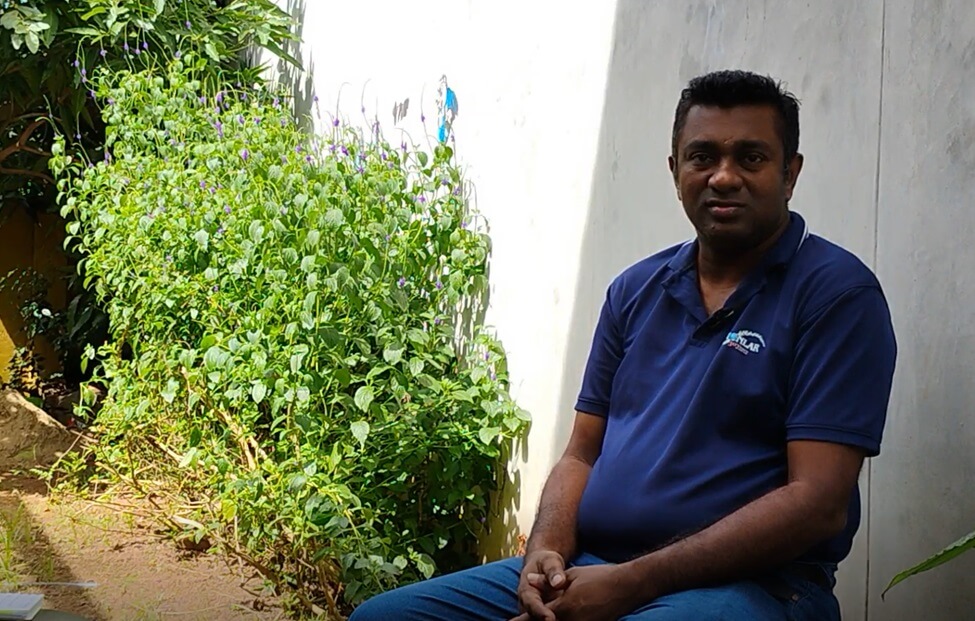
Mr. Shamila Rathnasooriya explaining his journey with MONLAR © Renaissance Sri Lanka
MONLAR’s Major Achievements
- Defending Seed Sovereignty in 2014
In 2014, the Sri Lankan government attempted to amend policies related to paddy seed cultivation. Traditionally, Sri Lankan farmers have cultivated and preserved their own seeds, which form the backbone of their agricultural sovereignty. However, the proposed amendments threatened farmers’ rights to produce and use their seeds, as the drafted bill sought to give corporations control over seed production and distribution. MONLAR, in collaboration with trade unions, farmers, and other stakeholders, launched a massive campaign to mobilize communities and prevent this bill from becoming law. Their efforts were successful in protecting farmers’ seed sovereignty and ensuring that local farmers retained control over their agricultural practices.
- Preventing Land Grabbing
Land grabbing has become a significant issue in Sri Lanka, with foreign investors, local business elites, and politicians seeking to acquire land for commercial purposes, often at the expense of rural farmers. MONLAR has been at the forefront of efforts to combat land grabbing, working closely with farmers from Bibile, Kurunegala, and other rural areas to protect their land rights. Through protests, advocacy, and legal challenges, MONLAR has successfully stopped numerous unethical land acquisition attempts, safeguarding the livelihoods of smallscale farmers.
- Opposing Water Privatization for Solar Plant Projects
More recently, the Sri Lankan government initiated a project to privatize water tanks for the construction of solar power plants, particularly in the Embilipitiya area. These projects posed a direct threat to the water resources and agricultural practices of local farmers. MONLAR quickly mobilized the farming community, organizing protests and advocacy campaigns to stop these projects. As a result, the government has since halted similar privatization initiatives, ensuring that water resources remain in the hands of local communities.
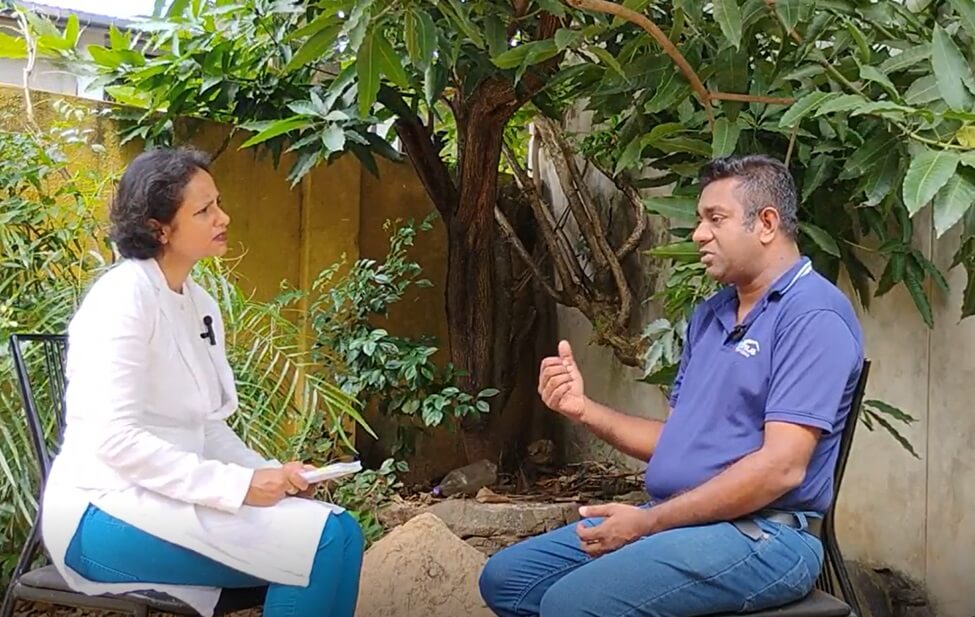
Mrs Ashinsa Bopearachchi is with Mr. Shamila Rathnasooriya © Renaissance Sri Lanka
Agroecological vs. Organic Farming
One of the key topics discussed during the meeting was the difference between agroecological farming and organic farming. Mr. Shamila explained that while both approaches promote sustainable agriculture, agroecological farming is a broader and more holistic approach that integrates ecological principles into all aspects of farming.
Agroecological farming focuses on:
- Biodiversity: Encouraging a diverse range of crops and livestock to enhance ecosystem resilience.
- Soil Health: Using natural methods like composting, cover cropping, and minimal tillage to improve soil fertility.
- Ecosystem Services: Harnessing natural processes for pest control, pollination, and nutrient cycling.
- Local Knowledge: Respecting traditional farming practices and integrating them with modern techniques.
- Social and Economic Sustainability: Supporting the wellbeing of farming communities through fair labor practices and equitable resource distribution.
- Integration of Technology: Using appropriate and sustainable technologies tailored to the farm’s ecological and social context.
In contrast, organic farming primarily focuses on avoiding synthetic inputs, promoting soil health, and adhering to specific certification standards. While both approaches share similar goals, agroecology places a stronger emphasis on social justice, community empowerment, and ecological resilience.
Empowering Women Through Agroecological Practices
One of the highlights of the meeting was a discussion about a project supported by Renaissance Sri Lanka, which trained 120 women in agroecological farming techniques (Read More). According to Mr. Rathnasooriya, this initiative has been transformative for the participants, enabling them to adopt low cost, sustainable agricultural practices that improve their livelihoods. The women have since formed cooperatives and established alternative market systems for their produce, providing them with economic independence and stability.

A training session to agroecology © MONLAR
In the Welioya area, for instance, women have started a small market where they sell agroecological products, creating a sustainable income stream for their families. This project is a shining example of how agroecological practices can empower rural women and contribute to the overall development of their communities.
The Future of Sustainable Agriculture in Sri Lanka
As the meeting concluded, Mr. Rathnasooriya expressed his gratitude to Renaissance Sri Lanka for its ongoing support of MONLAR’s initiatives. He emphasized that Sri Lanka has all the necessary resources for sustainable farming, including fertile land, water resources, and a skilled labor force. With 80% of the population involved in farming, Sri Lanka’s agricultural sector holds enormous potential for growth and development.
According to Mr. Rathnasooriya, the key to unlocking this potential lies in adopting agroecological practices that are in harmony with nature. He believes that with the right support, Sri Lanka can become a model for sustainable agriculture in the region, eliminating the need for imported fertilizers and synthetic inputs.
Conclusion
The meeting between Mrs. Ashinsa Bopearachchi and Mr. Shamila Rathnasooriya highlighted the crucial role that organizations like MONLAR and Renaissance Sri Lanka play in promoting sustainable agriculture and empowering rural communities. Through their collaboration, they are helping farmers adopt ecofriendly practices, protect their land and resources, and create sustainable livelihoods. As they continue to work together, their efforts will undoubtedly contribute to a more sustainable and equitable future for Sri Lanka.
Reference
Interview of Mr. Shamila Rathnasooriya by Ashinsa Bopearachchi on August 8th, 2024, at MONLAR Premises in Rajigiriya, Sri Lanka.


